This remodeling process is in part accomplished by activating new programs for gene transcription in the brain. Neurons use these programs to turn DNA into instructions for assembling proteins. However, this active transcription in neurons comes with a serious cost: It makes the DNA vulnerable to breaks, damaging the very genetic instructions needed to make proteins that are so essential for cellular functioning.
“There’s this contradiction there on a biological level — neuronal activity is critical to neuron performance and survival, yet inherently damaging to the DNA of the cells,” said co-first author Daniel Gilliam, a graduate student in the Program in Neuroscience at HMS.
The researchers became interested in how the brain balances the costs and benefits of neuronal activity.
“We wondered whether there were specific mechanisms that neurons employ to mitigate this damage in order to allow us to think and learn and remember throughout decades of life,” Pollina said.
The team turned its attention to NPAS4, a transcription factor whose function was discovered by Michael Greenberg’s lab in 2008. A protein known to be highly specific to neurons, NPAS4 regulates the expression of activity-dependent genes to control inhibition in excitatory neurons as they respond to external stimuli.
“The thing that’s been a mystery to us is why neurons have this extra transcription factor that doesn’t exist in other cell types,” said Greenberg, the Nathan Marsh Pusey Professor of Neurobiology in the Blavatnik Institute at HMS and senior author on the new paper.
“NPAS4 is primarily turned on in neurons in response to elevated neuronal activity that’s driven by changes in sensory experience, and so we wanted to understand the functions of this factor,” Pollina added.
In the new study, the researchers conducted a series of biochemical and genomic experiments in mice. First, they determined that NPAS4 exists as part of a complex made of 21 different proteins, known as NPAS4–NuA4. They then established that the complex binds to sites on neuronal DNA with a lot of damage and mapped the locations of those sites. When components of the complex were inactivated, more DNA breaks occurred, and fewer repair factors were recruited. Additionally, sites where the complex was present accumulated mutations more slowly than sites without the complex. Finally, mice lacking the NPAS4–NuA4 complex in their neurons had significantly shortened life spans.
“What we found is that this factor plays a critical role in initiating a novel DNA repair pathway that can prevent the breaks that occur alongside transcription in activated neurons,” Pollina said.
“It’s this extra layer of DNA maintenance that’s embedded within the neuronal response to activity,” Gilliam added, and it provides a “potential solution to the problem that you need a certain amount of activity to sustain neuronal health and longevity, but the activity itself is damaging.”
A broader view
Now that the researchers have identified the NPAS4–NuA4 complex and laid out the basics of what it does, they see many future directions for their work.
Pollina is interested in taking a broader view, by exploring how the mechanism varies across longer- and shorter-lived species. She also wants to investigate whether there are other mechanisms of DNA repair — in neurons and in other cells — and how those mechanisms work and in what contexts they’re used.
“I think it opens up the idea that all cell types in the body probably specialize their repair mechanisms depending on their life span, the kinds of stimuli they see, and their transcriptional activity,” Pollina said. “There are likely many mechanisms of activity-dependent genome protection that we have yet to discover.”
Greenberg is eager to delve deeper into the details of the mechanism to understand what each protein in the complex is doing, what other molecules are involved, and how exactly the repair process is carried out.
A next step, he said, is replicating the results in human neurons — work that is already underway in his lab.
“I think there’s tantalizing evidence that this is relevant to humans, but we haven’t yet looked in human brains for sites and damage.” he said. “It may turn out that this mechanism is even more prevalent in the human brain, where you have so much more time for these breaks to occur and for DNA to be repaired.”
If reaffirmed in humans, the findings could provide insight into how and why neurons break down as we age and when we develop neurodegenerative diseases such as Alzheimer’s. It could also help scientists develop strategies to protect other regions of the neuronal genome that are prone to damage or to treat disorders in which DNA repair in neurons goes awry.
Reference: “A NPAS4–NuA4 complex couples synaptic activity to DNA repair” by Elizabeth A. Pollina, Daniel T. Gilliam, Andrew T. Landau, Cindy Lin, Naomi Pajarillo, Christopher P. Davis, David A. Harmin, Ee-Lynn Yap, Ian R. Vogel, Eric C. Griffith, M. Aurel Nagy, Emi Ling, Erin E. Duffy, Bernardo L. Sabatini, Charles J. Weitz and Michael E. Greenberg, 15 February 2023, Nature.
DOI: 10.1038/s41586-023-05711-7
Additional authors include Cindy Lin, Naomi Pajarillo, Christopher Davis, David Harmin, Ee-Lynn Yap, Ian Vogel, M. Aurel Nagy, Emi Ling, Eric Griffith, Charles Weitz, Erin Duffy, Andrew Landau, and Bernardo Sabatini of HMS.
The research was supported by the National Institutes of Health (R01 NS028829), The Edward R. and Anne G. Lefler Center for the Study of Neurodegenerative Disorders, the Ludwig Neurodegenerative Disease Seed Grants Program, the Paul G. Allen Family Foundation, and the Tan Yang Autism Center.
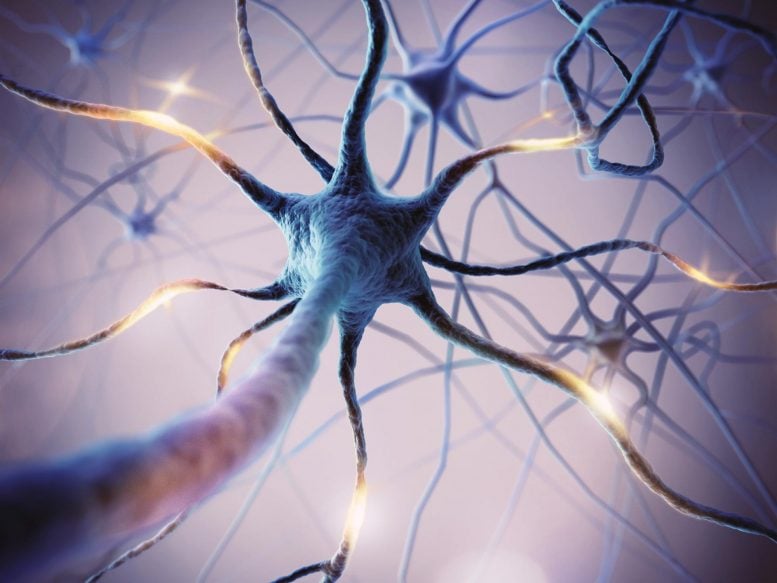

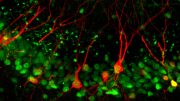
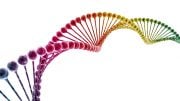
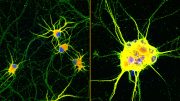
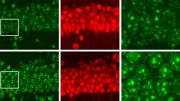
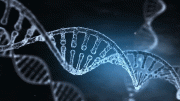
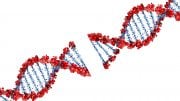
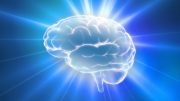
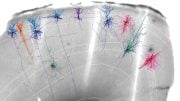
Dear Dr. Greenberg,
I saw your latest research involving DNA damage.
This paper might interest you:
“New insight into DNA damage by cisplatin at the atomic scale”
Author: R. Heyrovska
a) Nature Precedings http://precedings.nature.com/documents/6891/version/1
Presented at: the 12th Eurasia Conference on Chemical Sciences, Corfu, Greece, April 16-21, 2012. (Invited talk) Abstract in:
b) http://eurasia12.uoi.gr/Abstracts_pdf/%281%29%20Bioinorganic/S1%20ORAL/OP8_Abstract_Heyrovska_Eurasia12.pdf
……….